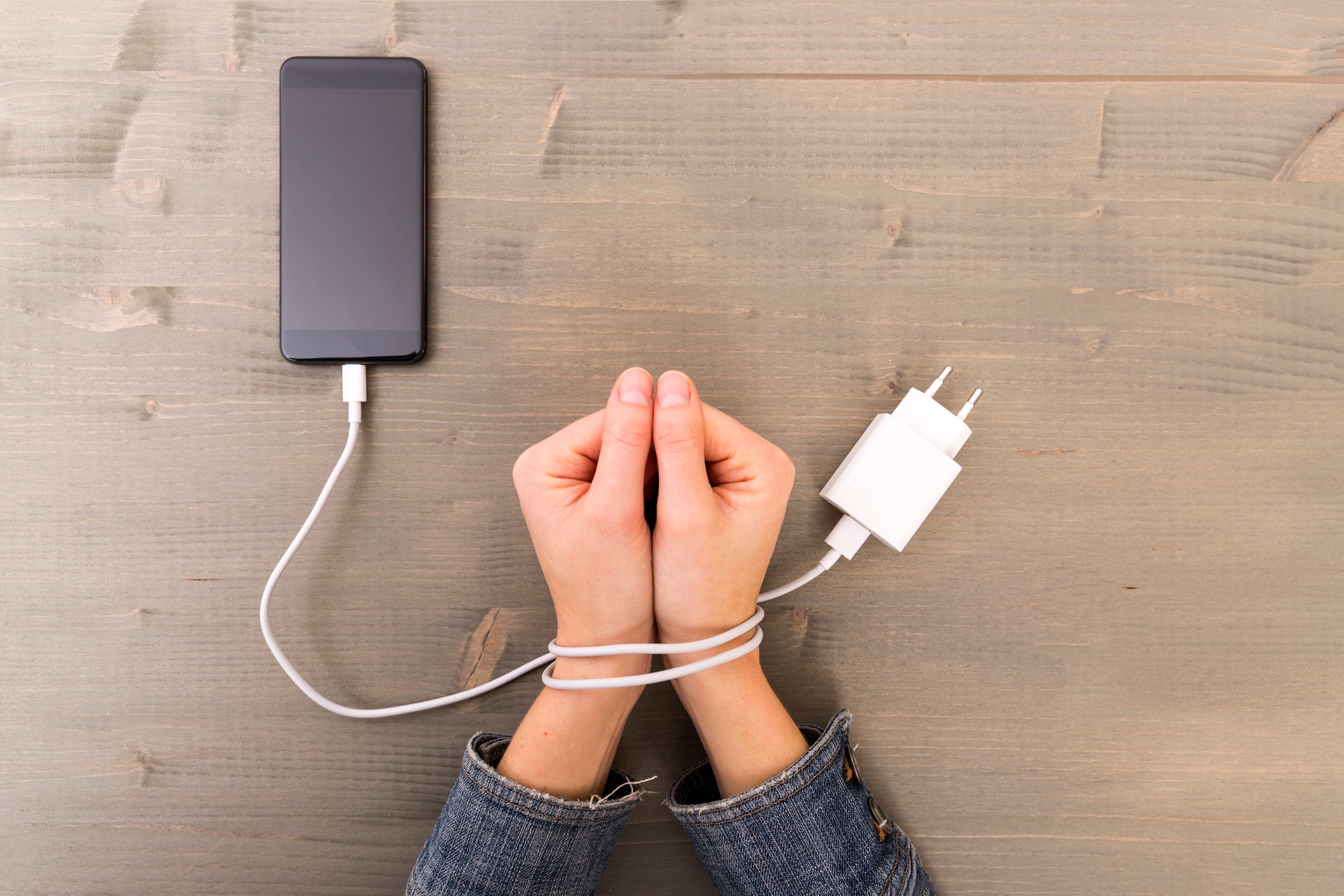The Independent's journalism is supported by our readers. When you purchase through links on our site, we may earn commission.
The new digital divide: people who can afford to log off, and those who can’t
I fear that logging off for as little as half an hour might mean a missed project or work opportunity, and a lot of people are in the same boat


Over the past few weeks, I have been trying to consciously take time to “log off and touch grass”. Not in a literal sense (I live in London), but rather, in relation to the meme “Touch Grass”. It is largely used as an insult toward those who spend so much time on social media they’ve forgotten a real world exists.
The phrase has been used more frequently over the past couple of years, where many of us have spent a record amount of time online during Covid related lockdowns. That time wasn’t just spent browsing social media or binge-watching Netflix shows. A large portion of our days spent online are at work - namely, in endless Zoom meetings, on Slack and MS Teams chats or responding to streams of emails.
Often, there is no longer a hard start or finish time at work, a problem that is more pervasive if you happen to be one of a growing number of freelance contractors. As I’ve tried to carve out small pockets of the day to be fully offline, I’ve found myself unable to part with my phone. Not because I fear missing out socially, but financially.
I fear that logging off for as little as half an hour might mean a missed project or work opportunity – one that might make bills a bit easier at the end of the month. For many of my friends who face higher rents and mortgages, this fear is all too familiar. From copywriters working project to project, computer programmers competing for low-paid app development gigs and digital designers juggling projects – in the ‘gig economy’ this economic insecurity is built-in.
Uber’s app discourages drivers from switching off on the basis that its algorithms reward drivers who take on more trips, while instant food delivery apps have turned many local restaurants into “ghost kitchens”, dependent on growth of the app to survive. Hyper-connectivity brings demands to constantly be online and always be available for a project, delivery or task. After all, your livelihood depends on it.
This shift challenges some of the conventional thinking around internet access and progressive politics. Access to the internet has long been an indicator of development, whether it’s the UN’s targets for universal, affordable internet access by 2030, or the Labour party’s maligned proposals for nationwide broadband coverage in 2019. During Covid lockdowns, nearly a quarter of the British public lacked the digital skills to work from home, and poorer areas were worse off in receiving education, claiming welfare, or hearing public health messages, according to Cambridge university research.
Fast, reliable internet access should be accessible to all, but it’s important not to see connectivity as the be all and end all. The past two years should be evidence that the internet is far more than a repository of information, but a system embedded into every aspect of our lives. And that comes with personal cost. After all, it’s not just our jobs that have become increasingly digital, but our social lives too. Even hosting a dinner party or pub quiz requires at least some engagement with a California-based tech platform.
It’s likely, then, that a different kind of digital inequality will emerge – where it’s not connectivity that determines social class but the ability to meaningfully log off.
Some of this is already beginning to take shape. “Digital detox” summer camps, in which people pay tens of thousands of dollars to camp out in mountains away from their phones, is a popular destination for rich Tech bros looking to “reconnect with nature”. Celebrity Selena Gomez has reportedly not been on the internet for 4 years, instead using a team to manage her online presence. Those with money and resources can benefit from “digital cleanses”, but this is a privilege for relatively few in the digital labour market. It is a stark contrast to workers who are exposed to darker, more demanding digital jobs and, even after clocking out, still carry a heavy mental toll.
In 2016, the French government introduced the “Right To Disconnect” in which workers were given the right to not read or respond to work-related emails outside of office hours. Similar legislation has been enacted or debated in countries including Spain, Canada and South Korea. And while the law should be welcomed, early evidence shows it’s largely middle and higher earning white collar workers who are the main beneficiaries.
To keep up to speed with all the latest opinions and comment, sign up to our free weekly Voices Dispatches newsletter by clicking here
Our conversations about the “digital divide” need to take into account both access to the internet, and how a person’s experiences of being on the internet is intrinsically linked to their social class.
So what should be done to address digital inequalities? Unsurprisingly, the answer has less to do with technology, than politics: from joining and forming unions, to campaigning for a more democratic, participatory internet, divorced from for-profit providers. The mainstreaming of hybrid working, alongside campaigns such as the four-day work week, might help us see the internet as more than just an extension of our working lives. In doing so it might even reduce our impulse to constantly be online and available at a moment’s notice.
Ultimately, though, the right to disconnect must be considered as important as the right to connect to the internet. Achieving this will give digital workers the dignity they deserve.
Without this, our likely future is one of an extremely polarised internet, in which the poorest are coerced into spending the vast majority of their waking hours on it, while the richest will be able to vanish entirely.
Join our commenting forum
Join thought-provoking conversations, follow other Independent readers and see their replies
Comments
Bookmark popover
Removed from bookmarks